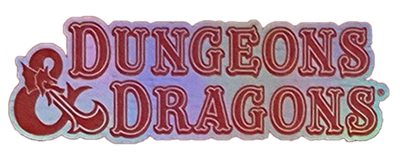Forums: Index > Watercooler > Removing Social Skills
Had an idea tonight--what does anyone else think of removing skill points completely for social skills when used out-of-combat? People could make an appropriate ability check flavoring what they do as they please to make it work (Fighter cracks walnuts in the palm of his hand to use Strength check for Intimidate, for example, Rogue might use Dex to tumble impressively and make people like him... or... something), and the DM would decide on the results of the check.
Some of the consequences:
- Everyone can play the social minigame. No longer is it restricted to people who have high charisma AND ranks in social skills.
- Gives an incentive to players to find interesting ways to RP beyond, "I talk in his ear until he's convinced," since any ability score can be used to talk to NPCs.
- Puts a bigger emphasis on RP rather than "I roll to make them like me."
- Does away for the most part with diplomancers. While you can shoot skill modifiers past a hundred, it's not that easy to do the same with straight ability checks.
- Keep the basic mechanic of D&D, which is d20+modifier vs. DC.
- Allows the +/-2 from the DM to mean something for good RP. +/-2 doesn't matter if you've got a +50 vs. a DC 30, but it can make a considerable difference if you've got +4 vs. DC 15.
- Keeps DCs manageable. Assuming that the prime score someone uses is going to rise by 16 over 20 levels, you can have a standardized DC of something like 15 + 1 per two to three levels.
- Allows characters to focus on other skills, giving more skill points overall, rather than making the single person who has them as class skills "have" to take bluff/diplomacy/etc to be the "party face".
- Charisma becomes even more meaningless to people who don't have it as a prime stat. But then again, it was before, so I'm not sure how much that changes.
Before anyone points it out; yes. This is basically freeform "lite". That doesn't make it a bad idea in and of itself.
Thoughts? --Ghostwheel 08:54, August 27, 2010 (UTC)
- You would have to rework how demoralizing and feinting work, but they are usually overhauled with houserules anyways. From a mechanics standpoint, this works similarly to a DM just asking "what is your diplomacy bonus?" and then setting a DC accordingly. The difference is 1d20+X and 1d20+Y -- which is really the nature of freeform DCs.
- A advantage and disadvantage to moving to such a system is that you are promoting a player to use their skills rather than the character. Instead of the character being the master at public speaking, the burden is now on the players. That is nothing new, however, because every combat challenges the player's ability to make tactical decisions (not the character's). And that is really the point of a game.
- One way I have considered doing social stuff (I haven't had the chance to try yet) is something like skill challenges. You freeform the DC like you suggested, but you also have a scale of how likely a person is to be swayed. In the case of bluff, you are trying to convince them using deception of some kind. In the case of diplomacy, you are trying to convince them using logic. In the case of intimidate, you are trying to convince them using fear. Back to the "scale" of how likely someone is to be convinced, you have something like this:
- Wants to believe it/Agrees with logic presented/Intimidation is far "scarier" than what they are being told to do = 1 success
- Somewhat reluctant to believe it/Somewhat agrees with logic presented/Intimidation is a bit "scarier" than what they are being told to do = 2 successes
- etc.
- An advantage to a skill challenge type of system is that for diplomacy they may need to present several points to convince the person. Intimidation could also be used in new ways that diplomacy used to have a chokehold on: "if you send your goblins to attack the castle now, your fort will be open to attack by the hobgoblins to the north". Sure, that is a logical point, but it is more made with the intention of causing "fear". Bluffing may have the NPC question their bluff a certain number of times: "How did you manage to find out that information?". The DM will have a good baseline to know just how far they need to make their NPCs resist being convinced of stuff (which really is the whole basis of D&D's social skills).
- So does it matter to allow 1d20 + ability modifier vs. 1d20 + skill bonus? Probably not. It would probably help a bit to allow the fighter to make meaningful contributions. That would be nice too: I tend to pick classes with social skills for that very reason. --Andrew Arnott (talk, email) 13:29, August 27, 2010 (UTC)
